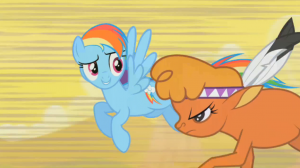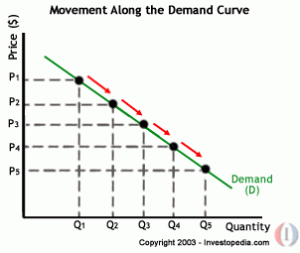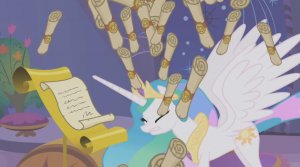Posts Tagged "Kickstarter"
Why Do You Even Want a Book?
Writing students seem to have a common obsession, getting a book with their name on it. I had a friend in undergrad who would always talk about how she just wanted a book. One book and she would be happy. She disregarded all criticism and fired all of her editors, because she felt they were getting in the way of her dream by telling her to slow down. Now she has the book, a novel. It’s available to buy now. I would link it, but it’s the worst book I have ever read, and I can say that without hyperbole. After the novel came out the head of the fiction department at her MFA said that this book might ruin her career as a writer. She was so driven by her goal of getting a book out that she ignored any reason why she wanted a book to begin with.
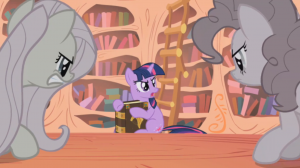
“This is my book, and people are going to read it…by the Christmas shopping season, regardless of how many more edits you think it needs!”
Asking someone why they want a book seems almost too obvious to answer, yet after they actually think about the question, they realize it’s actually much tougher than they thought. The answers I’ve mostly gotten were desires for attention, celebrity, money, etc. Of course, keep in mind nobody actually gives up these answers so easily or in so many words. Everyone’s like a contestant on “The Bachelorette,” even if they’re not playing “for the right reasons” they’ve all learned how to talk like they are. And no self-respecting writer readily thinks of themselves as a hack.
If anything I’m surprised how many people are willing to admit that they write as a means to get a book, and the book is the means to money, attention, fame, validation, whatever else they are looking for instead of the book. It’s a dangerous question: “Why do you want a book?” because it calls into question why you’re devoting your life to something. It’s a scary idea to think that you have no fucking clue, and believe me, many people don’t.
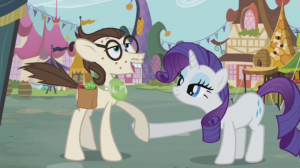
“I’m not on ‘The Bachelorette’ to find love. I’m mostly just publicizing my website. Getting physical with a hot white girl is just a bonus.”
And so you see students who will write anything to increase their publications. I’ve been lectured by a writer about how it’s about the quantity and speed of publications and not the quality of the writing. I had another writer go on for days about how Native American literature was the new trend in writing (apparently) and how she wished she was Native American so she could get the book deal (This isn’t just a willingness to compromise self-expression, but the entirety one’s self!) I heard about a student, without any fight, agree to his thesis adviser’s recommendation that he write genre fiction. That student admitted a hatred for genre fiction and a want to do a literary novel, but the adviser had a connection to a publisher. So he agreed so he could get the book. When he told me this story, he wanted me to pity him for having such a terrible thesis adviser, but I was just filled with contempt. If his own vision wasn’t something he could stand up for, then why should I care when it’s taken away?
I know the writing field is not as much of a meritocracy as it should be. I think all arts are corrupt in that way and probably always have been. So I won’t say that these people are going to fail, but what I am saying is that I don’t think these people will be proud of themselves in the end. There’s a difference between an artist and a content creator. The difference is that an artist owns their vision and manifests it, while a content creator manufactures a product. Maybe it’s just me projecting myself onto others, but I couldn’t be happy as a content creator.
I’ve never made a compromise with my editors or instructors that I didn’t agree with, that I didn’t feel still captured myself, my vision, my writing. I think the rarest and best answer is, “I want a book, because I write.” I want to share my stories with other people. The book is a venue for that. That’s why I want to be published, to serve my ideas. I see a book as a service for my stories; I don’t see my stories as a means to a book.
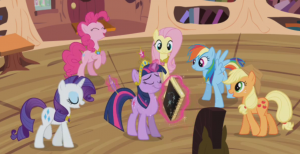
When I publish a book I want to be proud of what I wrote, not that I caught the market at the right time. I’m a writer, not a god damned real estate agent.
Then again, I’ve been spit on and dismissed as a writer, a theorist, and an editor so many times during my career as a student that I’ve developed a pretty mean chip on my shoulder. I know if you dissected me enough you would find vanity and validation motivating why I want a book, underneath the desire of serving my ideas. Maybe I’m also a Bachelorette contestant, here for the wrong reasons, but I’ve learned to talk the talk so well that I’ve tricked myself into believing my own fairy tales.
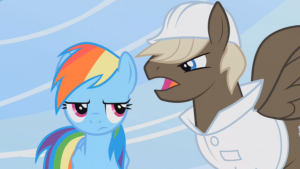
“I’ve never seen writing like yours before. Now if that sounded like a compliment, let me disambiguate, there’s no market for you. Who you are is someone nobody is interested in. Become someone else or you will fail.”
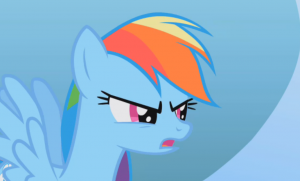
“I’d rather try and fail as myself than ‘be smart’ and succeed as someone else. An attempt, I owe that little to myself and my dreams. What will your definition of success bring me when I’m old and wondering what it is I’ve done with my life? Am I going to wonder what would have happened if I only had more courage when I was younger? Besides, I’m a damn good writer. I dominate the audience at readings and have little trouble getting published. I’m working out just fine as a humor writer, so thank you for your concern.”
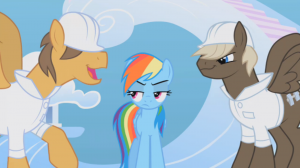
“You? A humor writer? That’s funny, because your writing makes me laugh…wait. I mean your writing is a joke. There, much better. Good self-edit.”
Who knows? I never put much thought into this question until I started my master’s program, which has a (sub)culture of among the students of being more interested in learning how to be a successful writer than in learning how to write (as if the two have nothing to do with each other). Considering my program is called a Masters of Professional Writing instead of a Masters of Fine Arts, this really should have been no surprise. I just wish someone would have told me earlier. I’m kind of lonely here, and I’m becoming angrier the longer I stay here. I’m having a harder time not just shouting “If you don’t have any fucking passion for writing, maybe you shouldn’t be getting a masters degree in it! Clear the bookshelves for people who care! Your life is too short to do something you don’t love! Maybe writing isn’t what your cutie mark is telling you.”
Note: I don’t know if this is a majority of people in my program or just a vocal minority, but it’s draining me just the same, and I want it to change.
Now, I’m not saying to give up if you’re not very good or not very successful. We all start off with varying degrees of bad writing. We have to work our way up. Writing well is something you can learn with focused study, right reason, time, and practice. I would never tell someone to give up on something they’re passionate about (#ratatouille). What I’m saying is if you don’t have passion for what you do, regardless of what you’re doing, you owe it to yourself as a mortal creature to be honest with yourself about it and not waste your life on it.
Maybe I’m the not the unheeded prophet, maybe I’m just wrong, naive, & idealistic. But I spent several weeks showing people how to SELL their creative works on Kickstarter. It’s not like my head is completely in the clouds and not grounded by captialism reality…right?
How To Do a Kickstarter: Perks
So Kickstarter uses a concept called “Price Discrimination” which allows you to reach different markets simultaneously and increase your profits by including people who won’t pay as much. It’s the same logic as the Playstation “Greatest Hits,” you sell the same game for cheaper after you’ve already sold to all the people who were willing to pay $50 for a $20 game.
But selling in tiers is a little different from just selling a product and later changing your prices. So here’s some advice on how to sell to these markets and maximize profits.
Low Tiers
Pocket change adds up. So do costs. The key to keeping your profits in the lower tiers is to offer something of value while keeping your hard costs (materials, manufacturing, and shipping) down.
Offer something that can be delivered digitally: File downloads, links to hidden behind the scenes Youtube videos, digital drawings, etc. This will keep your hard costs down.
Offer something that costs little and ships for cheap: Autographed photo, drawing, etc.
Thank You Tiers
A Thank You Tier is a tier where the donor gets nothing but a “Thank you.” Most projects have one. I think this is a lack of imagination (see options above) and a leak of potential money.
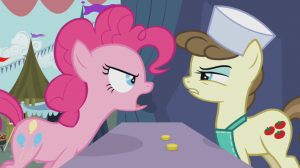
“No pony wants to buy a THANK YOU! Your appreciation should be an expected part of any transaction! People want to help you, but they don’t want to just waste their money! If you want to penetrate the nickle and dime markets you had better come up with a clever way to actually GIVE A PONY SOMETHING FOR THEIR MONEY AND DO IT FOR FREE!”
As of this writing the Connu campaign is only half-way done and due to the digital nature of their project, they can offer real incentives to their lower tiers without adding to their hard costs. In the $10 and under tiers they’ve earned $553. If this momentum keeps up they will likely fill 10% of their quota with the nickle and dime tiers.
Another campaign I’ve followed was an Indiegogo campaign was for a short film called “Shadow.” This campaign followed so many of my smaller rules and had great business strategy! At the same time there were many oversights that left much to be desired, or even felt insulting to the contributor. For instance they had 2 thank you tiers ($2 and $10), but they will only thank someone on their website if they give $10. How stingy! And what does that say to the $2 contributors? It says that even though they say “thank you” that they don’t appreciate it! It’s no surprise that Shadow only made $62 in the lower tiers, which is less than 1% of their quota.
Middle Tiers
Selling to the middle tiers is usually about value. Is the price reasonable? Is this a value or a good use of my money? Is this rare? Is this special?
You’ll find greater success with the middle tiers if you really show why your project is special and if this is where you’re simply selling your project: Bluray of the movie, copy of the game, CD of the album, etc.
If you have a monopoly on your product and you can generate enough interest in it (why you should invest in your video), then you can safely inflate the price of your wares.
Note: Being too greedy will cost you
Law of Demand states that goods have a price which will yield the greatest profit. If you price something too high, you will sell too little (which hurts profits). If you price something too low, you will sell much more, but you still won’t make much of a profit. The key is to try to find the right value (P3 and Q3 in the chart above). The Law of Demand is sometimes called the “Law of the Bloody Obvious,” probably a British term.
Thus fair pricing will actually increase your profits. You should do a survey of your friends (unless your friends are rich, then ask other people…or actually you should just ask your rich friends for money) to find a good prices. Keep in mind that what people will pay for say “The Brony Documentary” might not be the same as what they’d pay for “indie short film about failed marriage.”
Top Tiers
The top tier donors are usually people who have too much income and want to be apart of something. Money is not particularly a problem with these people. Usually what most Kickstarters do is find a way to either give these donors super rare things, such as evenings with celebrities or autographed rare merchandise or they find some way to include the donor into the creation of the project itself: an NPC (non person character), an extra in the background of your film or comic, etc.
The Shadow campaign had a great strategy for the top tiers: sell to businesses. They offered walk on roles or product placement and advertisements in the film. It’s impossible to tell whether anyone bought this from them or whether they elected to be an extra in the film, so I’ll say they earned 0-10% of their funding this way. Either way it’s a really good idea. If someone won’t spend their own money, they might spend their business’ money.
Tier to Tier Sales
So each tier adds something new to the perks below it for an added cost. Many crowd sourced projects leak money by not making the cost increase equal to what is added. So many of their donors choose a lower tier than they normally would. Now it’s impossible to accurately guess opportunity costs, but I’m going to speculate a little.
The Indiegogo campaign for the unreleased tapes of the Brony Documentary had 227 people donate $10, but only 29 people donate $25. This is a huge drop off from
These were their perks.
$10
-Digital download of film
-Photo album access$25
-Sticker sheet
Essentially you’re paying $15 for a sheet of stickers. These stickers cost more than the actual video file. I wonder how many people donated $10 instead of $25 because they couldn’t justify spending $15 on stickers.
I believe the following would have generated more money for them, simply by adding more value to the added investment.
$10
-Digital download of film$25
-Sticker sheet
-Photo album access
$10 tier just gives the bronies what they want, to see the added footage. $25 gives you the stickers and exclusive access to photos.
That’s it for perks advice! Good luck!
More:
How To Do a Kickstarter: Sharif Acts Like Don Draper on an E-Mail (Public Relations)
How To Do a Kickstarter: Perks
How To Do a Kickstarter: E-Mails
How To Do a Kickstarter (Short Version)
How To Do a Kickstarter: E-Mails
Skullgirls has probably done one of the most successful campaigns ever. Their initial goal was $150,000, but they ended up earning close to a million dollars. If you look back at the How To Do a Kickstarter (Short Version), and compare it with how Skullgirls did their campaign, you can see what they’ve done right.
One really important thing that I forgot to mention in the short list (might go back and add it) is INVOLVE YOUR DONORS IN THE PROJECT! Skullgirls created surveys and everyone who donated any amount of money got some say in who the new downloadable character would be. This is how they got me to donate. I paid $1 so that I could vote for Marie, a character voiced by Rina-Chan. By the way I should note, I DON’T EVEN PLAY SKULLGIRLS!
This brings me to the greatest benefits and faults of their campaign, E-mails.
Do’s
1. Keep your donors updated
Use the e-mail feature of Kickstarter to keep your donors informed about what their money is doing. People work hard for their money. They want to know what they helped to create with it. This will make them more inclined to contribute to future projects or spread word of mouth on this one. Dale Carnegie said, “People support a world they help to create.” And boy, let me tell you, Skullgirls kept the donors updated…maybe too much. More on that in the “don’ts” section.
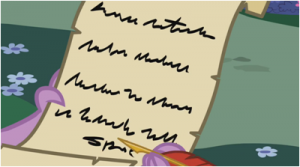
Dear Jerks,
Today I used your funds to buy a burrito. It was delicious. You guys are such saps.
-Spike (Bad example. Good idea.)
2. Involve your donors
Skullgirls gave all donors a chance to vote on the new downloadable character. They used the e-mails to send out links to surveys which allowed the donors a chance to take a real role in the development of the game. Based upon how much additional funding they’ve received, I believe this alone could easily be responsible for over $100,000 of their contributions.
3. Rally the troops
People have given you money, because you’re their friend and they don’t want to hear you bitch about how you didn’t support them they believe in what you want to do. Sending out mid-campaign e-mails to remind people the clock is ticking and that they can help by sharing your campaign with their friends is a good way to make money. Don’t just crowd source your funds, crowd source your fund gathering. With Rina-Chan’s participation, quite a few bronies championed the funding of Skullgirls. At least I know Spenser from the Brony Clubhouse was shouting from the social media heavens about it.
4. Sell to the lower tiers
So your creative team is paid, your work is done, and the final product is hitting stores. Now what? Well, not everyone bought your work. The lowest tiers probably gave you a dollar for basically nothing in return. They’re clearly a hot lead for someone who likes the project. E-mail them and let them know that your movie/game/hot dogs are now for sale.
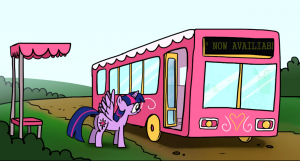
“I know you didn’t give me enough money to actually get a ‘free’ bus playset, but it’s now available in stores for you to purchase with additional money.” (Image Source Dawn Somewhere)
Maybes?
1. Numbered only for uniformity but this is the only maybe. It’s a good idea to use this e-mail list serve to promote future projects.
This is a good idea, because these people are already interested in what you do and are hot leads for your next project. IT IS A BAD IDEA TO JUST START E-MAILING PEOPLE! The right way to do this is to e-mail your donors (burying the lead) thanking them, and then asking if they would like to sign up for a mailing list about your future projects.
Trust me, you don’t want to e-mail people directly about your other projects (see the first don’t). Best case scenario people unsubscribe. Worst case scenario, they flag you as spam and your e-mail will get shot down by spam blockers. It’s in your best interest to ask them to subscribe to your personal newsletter (Bonus tip: You’ll get more people if you reassure them that they can unsubscribe! Also make a method for them to unsubscribe.)
If you’re so daring, don’t be a selfish tool when doing this. Keep in mind that your work may have brought publicity for the stars of your project. Your donors may want to follow the artists or actors on Twitter or Facebook. Spread the love, because those stars probably promoted your Kickstarter.
Don’ts
1. Don’t spam!
Do not send people info about other people’s projects or the projects of your friends. Try to keep everything relevant and on topic to what people signed up for (I know this kinda contradicts the advice immediately above this).
2. Don’t overwhelm your donors.
This is the one thing I hated with the Skullgirls campaign. They e-mailed me ALL THE TIME. Limit e-mails to a MAXIMUM of 2 a week.
3. Most importantly, don’t make it all about yourself or your project.
Your donors have just made it possible for you to fulfill a dream. They may do it, because they love you. But they can also be motivated by their desire to be a part of something important. It is never a bad idea to make someone feel special. Look through your e-mail and see how many times you say “I” or “We” versus how many times you say “you.” Remember even though this is about you, make it about them. They gave you money, it’s the least you could do…other than the perks they bought.
More:
How To Do a Kickstarter: Sharif Acts Like Don Draper on an E-Mail (Public Relations)
How To Do a Kickstarter: Perks
How To Do a Kickstarter: E-Mails
How To Do a Kickstarter (Short Version)
How To Do a Kickstarter (Short Version)
I hate most crowdfunding. It’s not really that I have a problem with the concept, but most people irritate me with they way they ask for my money. It’s like you’re asking ME for money so that you can start a business in which you keep making money, and I get an overpriced ______. So you should at least try to seduce me a little and not just be a bunch of annoying, entitled 20 something year olds. Show me that you care. Show me this is real. Show me that I’m not just a sucker and a means to an end. Make me feel like I’m a part of something special, not just something special to you, but to me and the rest of the world.

“Here, I’m giving you 2 bits for your project. Please don’t hate me. I’d give you more, but Wells Fargo lent me that money so I can go to school.” -Me every time I donate to a friend
How do you do that? Here are some Cliff Notes that should help. Later I’ll do a more expanded post focusing on the videos, perks, & e-mails.
Image
1. Look like you’re serious (If your project is fun, show that you’re serious about fun).
2. Look like you’ve actually put some of your own money into this project (at least INVEST IN YOUR VIDEO!)
3. Look like you would actually invest in this project yourself.
4. Look like you aren’t just asking someone to pay the rent and buy you Taco Bell while you make art.
Ethics
1. Don’t look like you’re trying to get other people to cover your investment costs while you reap all of the benefits.
2. BE FAIR TO THE PEOPLE GIVING YOU MONEY!
3. Be appreciative of ANY donation.
Sales
1. Don’t pan handle. A donation should get the donor (no matter how small) something if possible. Ideally use advance sales of the product or discounts towards purchases of the product.
2. Give people something they would want.
3. Explain to people why your project is something they should believe in and support.
4. If you can, your perks can be used to endorse your product (ie. Free trials, posters, stickers, etc.)
So I have to say, my friends Niree Perian, Susannah Luthi, and Kai Chan have done a textbook PERFECT job in all of these criteria with their crowdfunded project of Connu. You don’t have to donate (though you should if you can) but at least look at how well executed their campaign is and use this as a model for your own projects.
More:
How To Do a Kickstarter: Sharif Acts Like Don Draper on an E-Mail (Public Relations)
How To Do a Kickstarter: Perks
How To Do a Kickstarter: E-Mails
How To Do a Kickstarter (Short Version)

